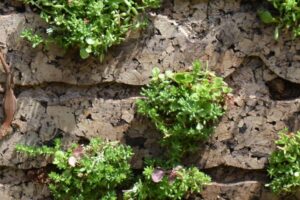
CIT UPC, present at meetechSpain
April 12, 2023
New call of the Ministry of Science and Innovation for Cervera R&D transfer projects
May 3, 2023
CIT UPC, present at meetechSpain
April 12, 2023
New call of the Ministry of Science and Innovation for Cervera R&D transfer projects
May 3, 202327/04/2023
UPC has created a new online platform to increase the visibility of the University's scientific and technical infrastructure and services and make it easier for companies, government bodies and the scientific community to access them.
The Universitat Politècnica de Catalunya - BarcelonaTech (UPC) has 35 laboratories that carry out research activities and bring together over 450 services with fees. It also has over 45 notable scientific infrastructures such as the Barcelona Research Center in Multiscale Science and Engineering, the Environment Centre Laboratory, and the Maritime Research and Experimentation Wave Flume (CIEM) of the Maritime Engineering Laboratory (LIM), among others. In addition, the University has over 950 lines of service in the areas of advanced materials, industry, health tech, architecture and urbanism, construction and infrastructure, mobility, agro-tech, energy, sustainability and the environment, computing and calculation, telecommunications systems, artificial intelligence and industry 4.0.
The new Technical and Scientific Services portal of the UPC, which is available in Catalan, Spanish and English, is presented as a one-stop shop so that companies, government bodies and the scientific community can consult the wide range of lines of service that are offered in different areas, the list of outstanding scientific infrastructure, and the availability and corresponding fees. The website also increases the visibility of these services. Through the website, which is updated periodically, it is easier to identify services. Requests are managed and direct contact is made with University research groups and technical staff in the various services and laboratories.
UPC is a leading university in research and knowledge transfer and a leader in raising funds for international research projects. It was the Spanish university that received most funds for the research and innovation programme Horizon Europe for the period 2021-2022. In 2021, the university received 70.2 million euros for its research, development and innovation activities. It developed 1,064 projects with companies and earned over 1.8 million euros for services.
Related Projects
- The BIOsignal Analysis for Rehabilitation and Therapy (BIOART) research group at the Universitat Politècnica de Catalunya – BarcelonaTech (UPC) coordinates the Proactive Response and Efficient Planning with AI for Resilient Emergencies in hospitals (PREPARE) project, which aims to optimise hospital preparedness during emergencies through dynamic capacity and risk assessment using artificial intelligence (AI).
- A research team from the inLab FIB at the Universitat Politècnica de Catalunya - BarcelonaTech (UPC), together with the Asociación de Personas con Movilidad Reducida (AsoPMR), has taken part in the Spot4Dis project to enhance the mobility and autonomy of people with reduced mobility.
- The La Volta project foresees the construction of a large Catalan vault pergola within the Llars Mundet campus, in the Montbau neighbourhood (Horta-Guinardó district). This structure will become a new architectural landmark for Barcelona, combining traditional construction techniques with contemporary innovation. The project involves the Rehabilitation and Architectural Restoration Research Group (REARQ), at the Universitat Politècnica de Catalunya - BarcelonaTech (UPC), and is led by the Architects’ Association of Catalonia (COAC) and the Barcelona Provincial Council.
SATE-VEG: A system for energy renovation of buildings that helps reduce the urban heat island effect
Researchers from the Architecture, Energy and Environment (AiEM) group at the Universitat Politècnica de Catalunya - BarcelonaTech (UPC) have developed SATE-VEG, an external thermal insulation system with a vegetal coating that offers seasonally adaptive thermal behaviour, enhances urban biodiversity and promotes positive health effects. The system is made from organic materials, requires low maintenance and consumes minimal water.





